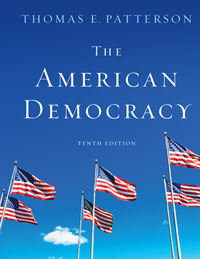1 A) the states already existed. B) they felt that it would protect liberty. C) they felt that it would provide the foundation for an effective national government. D) the confederal system in existence was ineffective. E) All these answers are correct. 2 A) Thomas Jefferson B) Alexander Hamilton C) James Madison D) John Marshall E) Aaron Burr 3 McCulloch v. Maryland (1819)?A) Under the doctrine of implied powers, Congress had the power to create a national bank because it was assigned the powers to tax, borrow money, and regulate interstate commerce under the Constitution. B) National law was supreme over conflicting state law. C) Under the doctrine of implied powers, Congress had the power to create a national bank because it was assigned the powers to tax, borrow money, and regulate interstate commerce under the Constitution, and national law was supreme over conflicting state law. D) Sovereign states can tax the national government. E) Congress lacked the authority to charter a national bank. 4 A) John Marshall B) Alexander Hamilton C) Andrew Jackson D) John C. Calhoun E) Roger Taney 5 Dred Scott case of 1857?A) The Supreme Court justices intensified the conflict between the North and South. B) The Supreme Court justices struck down the Missouri Compromise of 1820 as unconstitutional. C) The Supreme Court justices ruled that Dred Scott was property, and therefore ineligible to sue in the federal courts. D) The Supreme Court justices ruled that slavery was unconstitutional. E) All the statements are true, except the answer indicating that the Supreme Court ruled slavery unconstitutional. 6 Plessy v. Ferguson (1896), the Supreme Court justices createdA) modern free speech doctrine. B) the doctrine of fiscal federalism. C) the doctrine of dual federalism. D) the "separate but equal" standard. E) the doctrine of implied powers. 7 A) The South is a Democratic region. B) The South is a liberal region. C) The South is both a Democratic and liberal region. D) Poverty is more widespread in the South than other areas. E) None of these answers is correct. 8 A) Canada. B) France. C) Great Britain. D) Japan. E) Sweden. 9 A) It consistently ruled in favor of expanding the powers of Congress. B) It consistently restricted national power. C) It consistently ruled that Congress could not regulate child labor. D) It consistently restricted national power and decreased the power of Congress to regulate business. E) It consistently ruled against the segregation of the races. 10 A) 5 B) 10 C) 15 D) 25 E) 50 11 A) Robert Dole B) Bill Clinton C) Newt Gingrich D) Trent Lott E) Strom Thurmond 12 A) a modification of fiscal and cooperative federalism, rather than their demise. B) the demise of fiscal federalism. C) the demise of cooperative federalism. D) more power centralized at the national level. E) None of these answers is correct. 13 A) John Adams B) Benjamin Franklin C) Alexander Hamilton D) James Madison E) Patrick Henry 14 A) national defense B) interstate commerce C) taxation D) education E) police protection 15 A) the ancient Greek city-states. B) the medieval period. C) Great Britain in 1514. D) France in 1676. E) America in 1787. 16 A) Edward Sanford B) Owen Roberts C) Oliver Wendell Holmes, Jr. D) Joseph McKenna E) William Day 17 A) Thomas Jefferson opposed a national bank for fear it would serve only wealthy interests at the expense of ordinary citizens. B) Thomas Jefferson supported the right of the federal government to create a national bank based on its constitutional powers to tax and regulate commerce. C) Alexander Hamilton rejected the idea that a national bank could be formed under the "implied powers" of the federal government. D) Congress refused to establish a national bank for fear that it was encroaching on state powers. E) Jefferson was ultimately successful in convincing Congress to establish a national bank and expanding federal power. 18 A) Kimel v. Florida Board of Regents B) Garcia v. San Antonio Authority C) Printz v. United States D) Gonzalez v. Raich E) McCulloch v. Maryland 19 A) Congress could not tax or conscript citizens. B) most states paid their full dues to Congress. C) Congress routinely usurped the commerce powers of the states. D) Congress shaped the national economy. E) Congress greatly limited the power of the executive branch. 20 Schechter v. United States (1935), the Supreme CourtA) invalidated the 1932 elections. B) invalidated the National Industry Recovery Act, ruling that it usurped powers reserved to the states. C) prevented a state from regulating labor practices. D) prevented Congress from creating a federal regulatory agency. E) prevented Congress from creating the Medicaid program.





